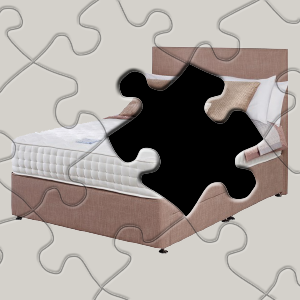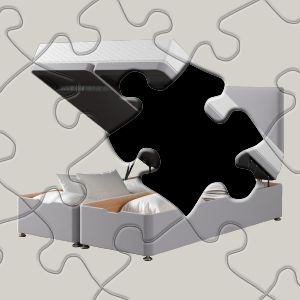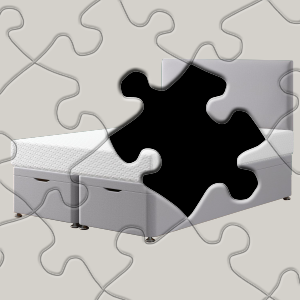19th Aug 2024
Signs Your Mattress Needs Replacing!
If your mattress is seven years old or more, you may need to think about changing it. It’s not just the visible signs of wear and tear, it’s what you can’t see!

Signs Your Mattress Needs Replacing!
Age of the Mattress
Mattresses nowadays have an expected lifespan of around 7 years, depending on the quality and usage. This means your mattress should have clocked up over 14,000 hours of use. This also means your mattress will have absorbed an entire bath-full of body moisture. It is estimated that every night half a pint of moisture is soaked up into our mattresses, that's a massive 80 gallons worth!About 450 grams of dead skin falls onto your mattress each year, which is half a stone over the course of 7 years for dust mites to thrive in.
Frequent Morning Aches and Pains
If you find that you wake up with regular aches & pains or have regular tightness & stiffness that is persistent throughout the course of your day, it may be an instant sign that your mattress is no longer fit for purpose. Using a worn-down & uncomfortable mattress long term can lead to poor spinal alignment and pressure points, which result in discomfort not just during your sleeping hours.Disrupted Sleep
Uncomfortable most nights? If you find yourself wriggling, regularly turning and waking up during the night, or alternatively you're having trouble falling asleep in general, it may be a sign that your mattress needs to go. Using an uncomfortable mattress can disrupt your sleep and act as a roadblock that stops you from reaching the deep sleep we all need.Allergies & Respiratory Issues
An old mattress will build up dust mites, allergens, and can even develop mold over time. This can easily trigger allergies or lead to respiratory issues. If you notice an increase in allergy-like symptoms or difficulty breathing during the night it could be your old mattress.Visible Signs of Wear and Tear
Finally, the obvious one! Take a good look at your mattress for visible signs of wear & tear. This could include sagging, lumps, or visible indentations that do not recede.Your mattress plays a significant role in sleep quality, and spotting the signs that your mattress needs replacing is crucial for maintaining this. If you can see visible wear/tear, experience morning aches, regularly suffer from allergies at night, generally have disrupted sleep, or if your mattress is nearing its expected lifespan, it may be time to consider investing in a new mattress.


















